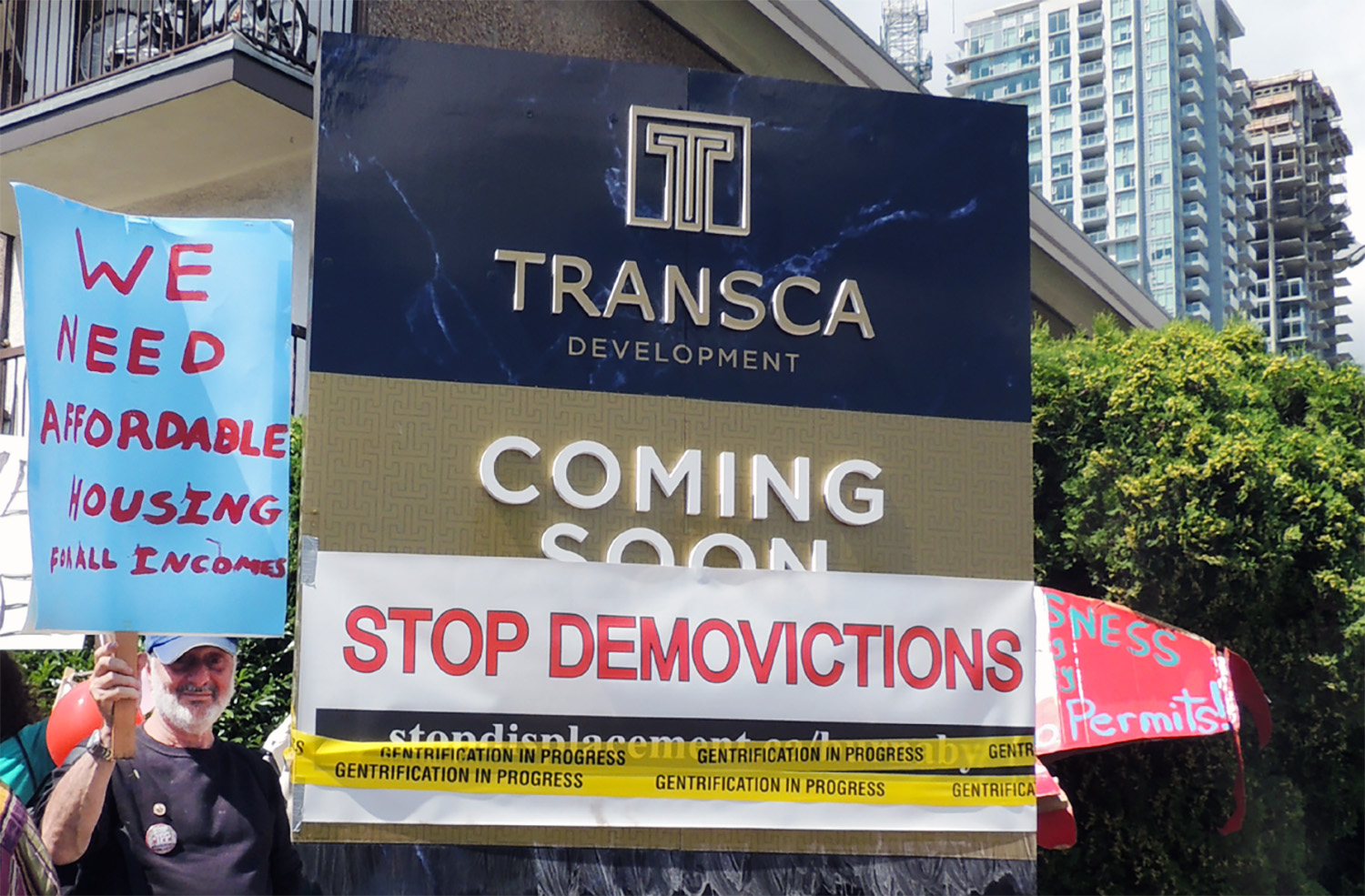Statement by the Provincial Executive, Communist Party of BC
The announcement of a major new liquid natural gas (LNG) export facility near Kitimat, British Columbia, escalates the climate change threat to the planet, in exchange for dubious promises of benefits for the province. The Communist Party of BC joins with Indigenous leaders, environmental groups and others who reject this dangerous project. We call upon the provincial and federal governments to cancel this deal, and instead prioritize immediate measures to reduce greenhouse gas emissions.
Despite media hype that all First Nations in the region have signed on to support the LNG Canada deal, the Wet’suwet’en Hereditary Chiefs have never ceded their traditional territories (Yin’tah), and condemn this attempt by the governments of British Columbia and Canada to impose another unwanted industrial project, ignoring their jurisdiction and title. This is especially significant because the Wet’suwet’en people have never lost in court, starting with the Delgamuukw-Gisday’wa decision by the Supreme Court of Canada, which ruled that Wet’suwet’en rights and title had never been extinguished across the 22,000 square kilometers of Yin’tah.
The argument by Prime Minister Justin Trudeau and BC NDP Premier John Horgan that the LNG-Canada project will not affect Canada’s Paris Agreement commitments is simply bogus. Despite claims that this project will cut greenhouse gas (GHG) emissions by helping overseas buyers to replace “dirty” fossil fuel by “clean” LNG, total greenhouse gas emissions will rise significantly when all aspects of the industry are taken into account. Just as important, flooding the international market with a bigger supply of “cheaper” fossil fuels undercuts efforts to transition to renewable energy sources.

The LNG-Canada Kitimat project (using electricity from the Site-C dam approved by the BC government) is projected to export 12-24 million tonnes of GHG annually over a 40-year span. This amount is not counted in B.C.’s emission totals, since it would be combusted offshore.
However, the project would dramatically increase BC’s domestic GHG emissions from the gas supply chain (fracking, processing and transportation) and the liquefaction facility itself. The LNG Canada consortium says its Kitimat facility would be twice as efficient in terms of GHG emissions per tonne of LNG produced, but this claim is unproven. All told, emissions from the Kitimat terminal plus those from further up the gas supply chain would hit 9–12 million tonnes of CO2 per year, nearly double the province’s current emissions from the oil and gas sector.
This would make it virtually impossible to achieve the province’s legislated reduction targets, which would permit BC economy-wide emissions of 39 Mt in 2030, falling to 13 Mt in 2050. The LNG Canada supply chain from wellhead to loaded ship would consume about a quarter of BC’s allowable emissions in 2030, and almost 90% of the 2050 emissions target. To stay within legislated targets, the rest of BC’s economy would have to fully decarbonize, which seems highly unlikely.
At the same time, the possible economic benefits from LNG sector (the provincial government predicts revenue of $23 billion over 40 years) are uncertain at best. In this regard, the experience of Australia is instructive. After entering the LNG sector early, Australians saw rising domestic prices, revenues far short of projections, and few jobs once the construction boom was over.
Here in British Columbia, the only way to make the LNG Canada project economically viable was to extend a series of tax breaks, incentives and credits to the investors. The Horgan government hopes to keep its Green Party legislature partners onside by promising to revoke some of these fossil fuel corporate giveaways before LNG comes onstream in a few years. But that may change, for example if the next provincial election results in a different composition of the legislature in Victoria.
The LNG Canada deal violates Indigenous rights, threatens to deepen the climate change crisis, and provides no real guarantees of financial benefits for the people of British Columbia. For all these reasons, the Communist Party of BC firmly opposes this deal, and pledges to our solidarity with the campaign to block it from going forward.




